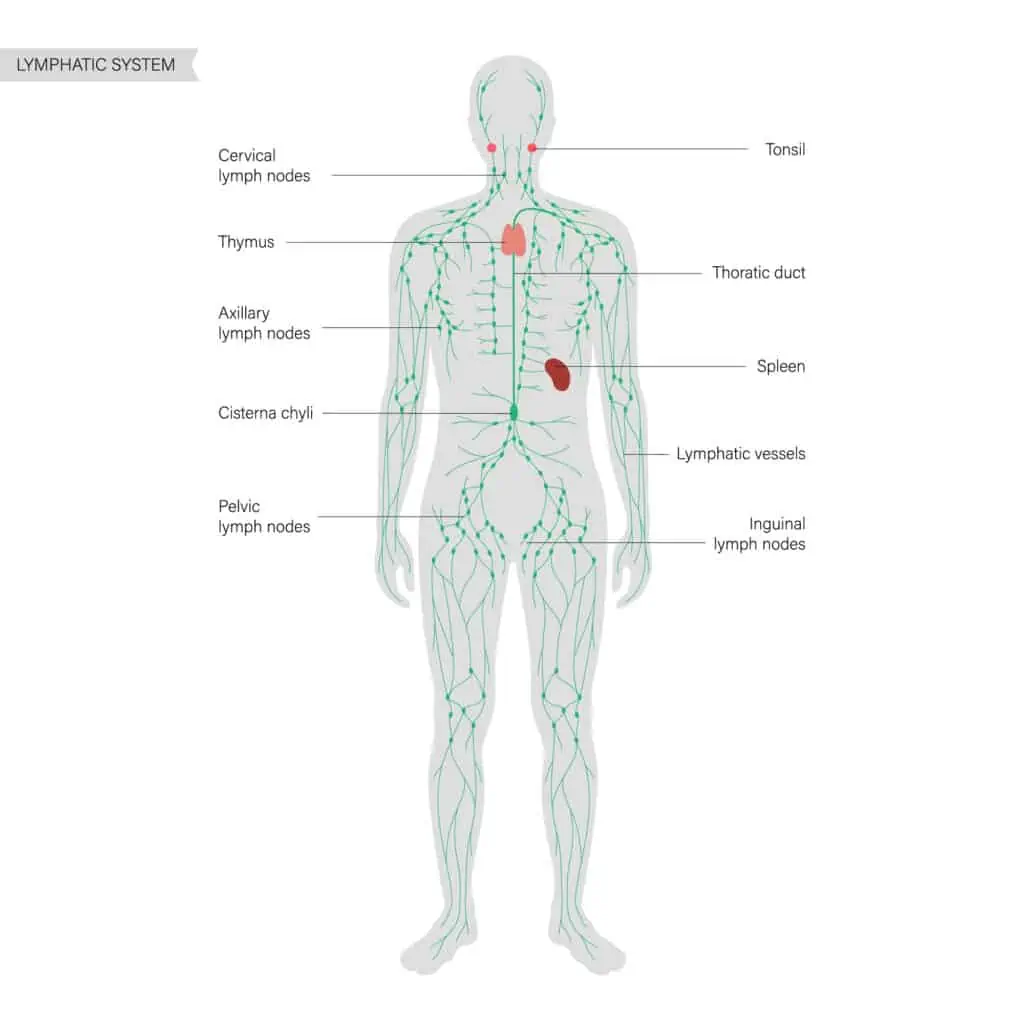What are lymph nodes?
Lymph nodes are small, jellybean-shaped structures that can be found all over the body. They contain the special immune cells and work to help fight and remove infection. Fluid (called ‘lymph’), filters through the lymph nodes before eventually passing back into bloodstream.
Sometimes, tiny cells from cancers can spread and travel via the lymphatic system through these lymph nodes, where they can be seen under a microscope if the lymph node is removed.

Why is testing lymph nodes important?
The information from the removed lymph nodes can help determine whether your cancer originated in the lymphatic system (for example, a lymphoma) or if it contains cancer cells that have come from somewhere else (a metastasis).
This can guide decisions regarding any adjuvant treatments (like chemotherapy or radiotherapy) or possible further surgery that you may require. Sometimes it is used to give information about the prognosis of a cancer.
Most lymph node biopsies are a straightforward procedure and are done under a quick general anaesthetic. It is likely that you can go home on the same day as your surgery.


